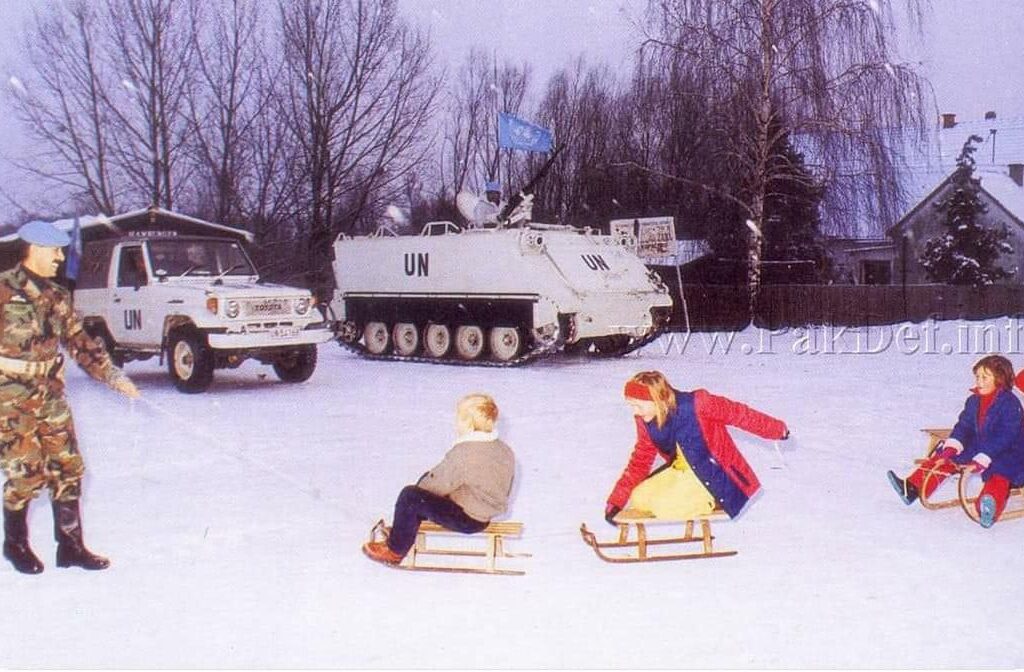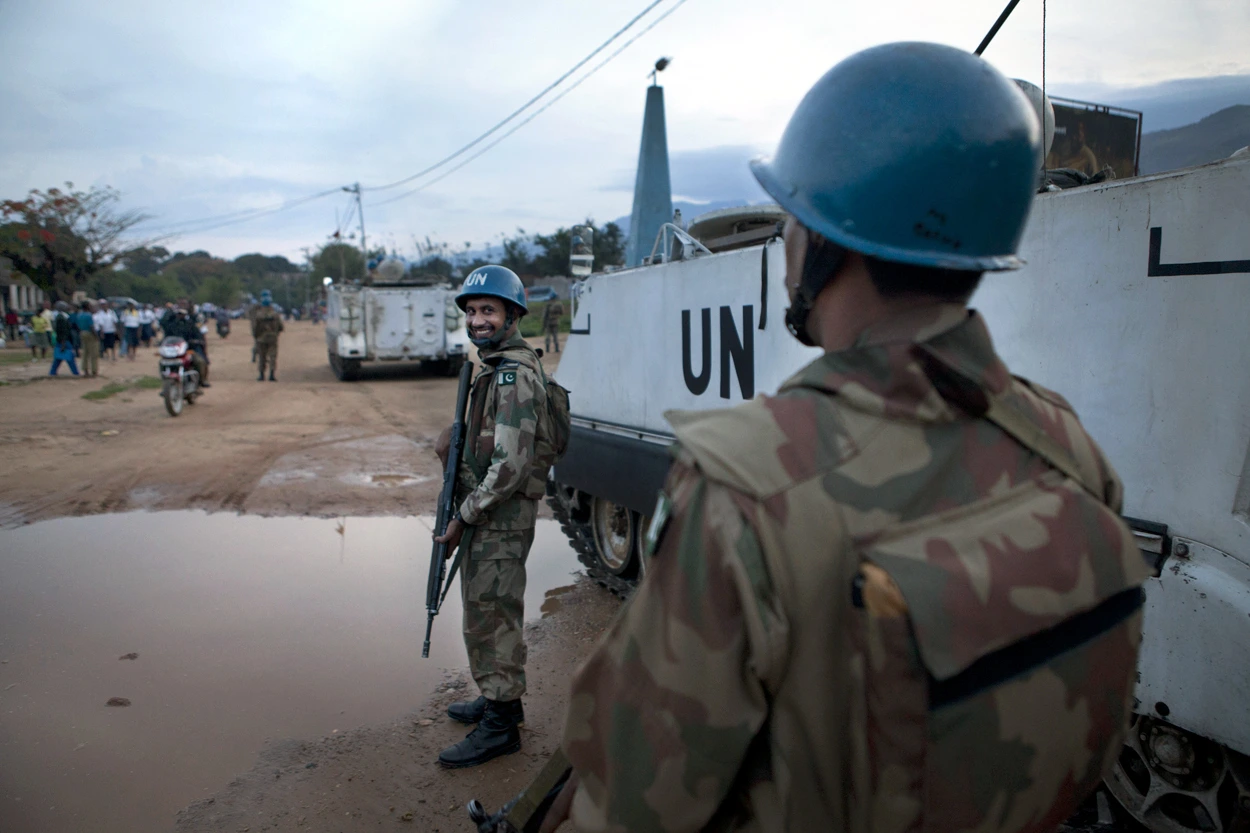For over 70 years, the United Nations has served as the world’s primary multilateral instrument for managing international crises and maintaining stability. At the core of this effort are its peacekeeping missions, which deploy a diverse range of personnel to the planet’s most volatile regions. In this critical global endeavor, few nations have demonstrated a more consistent or profound commitment than Pakistan. In the last 8 decades Pakistan has evolved from a nascent state to a cornerstone of international peacekeeping, defining a legacy of professionalism, sacrifice, and humanitarian commitment that has profoundly shaped global peace efforts and enhanced its international standing.
The Genesis of a Commitment (1960s-1980s)
Pakistan’s journey in peacekeeping began in 1960 with its first deployment to the Congo as part of the United Nations Operation in the Congo (ONUC). This inaugural mission was a foundational moment, demonstrating Pakistan’s willingness to contribute to global security from its very beginning. Faced with immense logistical challenges and an unstable political environment, the Pakistani contingent distinguished itself with its disciplined and professional conduct. This initial success was a harbinger of a broader role, as Pakistan’s early missions were not limited to conventional military roles. In the UN Security Force in West New Guinea (UNSF) in 1962, Pakistani peacekeepers were instrumental in preventing a potentially bloody conflict. Their tactful intervention ensured the smooth withdrawal of Dutch troops without hostilities, setting an early precedent for the nation’s ability to de-escalate tensions through non-combative means. This period cemented Pakistan’s reputation as a reliable and capable partner in complex, multi-faceted peace operations.
A Period of Expansion and Growing Influence (1990s-2000s)
The 1990s marked a period of expansion and growing influence for Pakistan’s peacekeeping role, as it engaged in some of the UN’s most challenging and high-profile missions. The country’s contributions during this decade solidified its position as a top-tier troop contributor, capable of handling extreme-risk scenarios. The United Nations Operation in Somalia (UNOSOM II) was a particularly dangerous and complex mission, where Pakistani troops faced a hostile and lawless environment. Their resilience and dedication were tested during the infamous Black Hawk Down incident in October 1993. When a US special operations raid went awry, Pakistani armored vehicles and troops, along with Malaysian forces, formed a multinational Quick Reaction Force. They navigated intense urban combat to rescue and extract stranded American soldiers, a heroic act that was publicly acknowledged by US officials for saving many lives and demonstrating unparalleled bravery.
Similarly, Pakistan’s role in the Balkans was a critical test of its commitment to missions beyond its traditional spheres of influence. In Bosnia, under the United Nations Protection Force (UNPROFOR), a contingent of 3,000 Pakistani troops was deployed in 1994, contributing to the effort to protect designated “safe areas” and deliver humanitarian aid in the midst of a brutal ongoing genocide of Bosnians by Serb forces. Their presence was crucial in providing security and stability, and their logistical and engineering expertise was vital to the mission’s success. The bravery of the peacekeepers in the face of continuous hostilities was a testament to their professionalism. Their humanitarian efforts, including providing medical assistance and distributing food, earned them deep respect from the local population.

This era of major contributions has come at a significant human cost. Over the decades, more than 160 Pakistani peacekeepers have made the ultimate sacrifice in the line of duty while serving the cause of global peace. This immense sacrifice is a stark reminder of the dangerous nature of their work and a testament to their unwavering dedication to a cause greater than themselves.
Diversifying Roles and Modern Challenges (2010s-Present)
In recent years, Pakistan’s peacekeeping role has continued to evolve to meet modern challenges. The country has broadened the scope of its contributions beyond traditional military roles. A key development has been the deployment of Female Engagement Teams (FETs) in missions like the UN Multidimensional Integrated Stabilization Mission in the Democratic Republic of Congo (MONUSCO). These all-female teams have been vital in building trust with local communities and addressing the unique needs of women and children in conflict zones. Furthermore, Pakistani contingents are increasingly engaged in addressing non-traditional threats. A prime example is the UN Mission in South Sudan (UNMISS), where Pakistani engineering units have been celebrated for their work in constructing and maintaining crucial dikes to protect thousands of civilians from catastrophic floods. This highlights a practical, modern application of peacekeeping that combines military expertise with humanitarian relief, showcasing the adaptability of Pakistan’s forces.
The appointment of Pakistani officers to senior command and staff positions within the UN system, such as Force Commander roles and Police Advisor positions, further demonstrates the international community’s trust in their leadership and expertise. As one of the longest-serving and largest troop contributors, Pakistan also brings a unique perspective to UN policy discussions, advocating for the interests of other developing nations and promoting a more equitable approach to international security.
A Lasting Legacy
Pakistan’s enduring and positive role in UN peacekeeping is a testament to its profound commitment to global peace and stability. From the foundational missions of the 1960s to the modern, multifaceted deployments of today, Pakistani peacekeepers have consistently demonstrated courage, professionalism, and a deep-seated humanitarian spirit. Their legacy is not merely one of numbers and deployments but of lives saved, conflicts de-escalated, and hope restored. As the nature of global conflict continues to change, Pakistan’s role remains a powerful example of how a nation can effectively use its military to serve a higher, humanitarian purpose, securing its place as an unsung pillar of international peace and security.






![Prime Minister Narendra Modi with External Affairs Minister S. Jaishankar at an official event. [Photo Courtesy: Praveen Jain via The Print].](https://southasiatimes.org/wp-content/uploads/2026/02/20-scaled-e1755601883425-1024x576-1.webp)